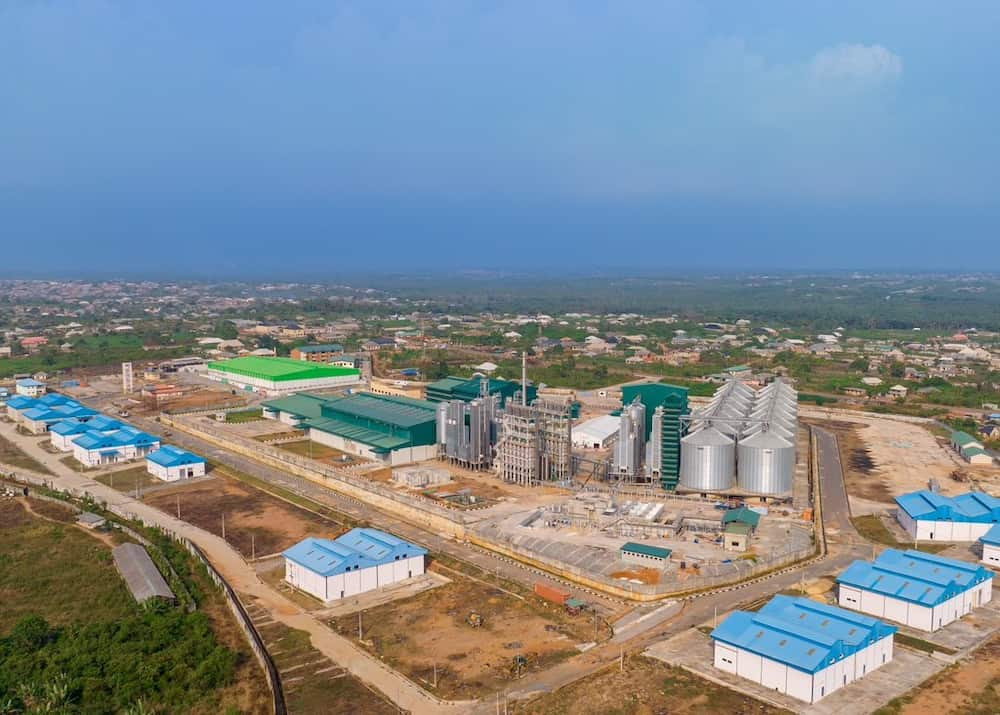It is reputed to be the biggest rice mill in sub-Saharan Africa. Sited in Imota, a rural community in the Ikorodu Division of Lagos State, the huge project on a land space of 22 hectares, is also the third largest mill in the world. With a capacity to produce 2.8 million bags of 50kg bags of rice yearly, while generating 1,500 direct jobs and 254,000 indirect jobs, only Lagos, truly the City of Excellence, could have pulled off a gargantuan project of this magnitude. The facility is an integrated mill with two warehouses and 16 silos, each with a capacity of 2,500 tonnes, 25 metres high, 40-year life.
One of the signature projects of Governor Babajide Sanwo-Olu, the economic gains of the construction of the rice mill on Lagos State and Nigeria, is as huge as its size. At full production capacity, the facility will drastically reduce prices of rice, increase local capacity and ultimately improve Nigeria’s trade balance. In terms of technical capacity, the Imota Rice Mill boasts the best there is. Fully automated, its machines were sourced from Bühler, a Swiss company, and one of the world’s leading manufacturers of processing technologies. A local company, Henry Karll, installed the plant under the supervision of Bühler. The water supply, treatment, filtration and reverse osmosis are being handled by a local company that had also worked for Coca-Cola, Pepsi and Nigerian Breweries. The Sanwo-Olu-led administration is also developing an industrial park adjacent to the mill. The park, according to the governor, would have amenities to make businesses thrive and bring returns on investments to business owners.
To facilitate a seamless supply of inputs for the facility, the Lagos State government is undertaking a backward integration strategy in form of collaboration with Kwara, Sokoto, Benue, Borno and Kebbi states, to meet the paddy requirement of the mill. To make the operation of the 32-metric tons rice mill flawless, the state government signed a management deal with WACOT Rice Limited, a subsidiary of TGI Group. The private firm is to provide operational support and manage the mill for nine months in the first instance, through Joint Venture. The partnership is subject to renewal subsequently. Explaining the rationale for the deal with WACOT, the Commissioner for Agriculture, Ms. Abisola Olusanya said the privatisation of the rice mill’s operations was to ensure efficiency in the output of the facility, noting that the idea was initiated in 2019 when the state government initiated the discussion with the firm.
The governor’s vision for the mill is simple: to optimise the project through a respectable private brand with technical support, and deliver a sustainable mill functional to its capacity. According to the Special Adviser on Rice Initiative to Governor Sanwo-Olu, Dr. Rotimi Fashola: “There is a need for the government to put the rice mill on the path of sustainability and give it to a handler that will project quality. We sourced to have a partnership in rice production business that has a stable brand and eye for efficiency. This brings forth this joint venture and technical support agreement with WACOT. We are delighted that we are able to bring WACOT to the table for technical support, managerial and quality assurance skills”.
The Group Managing Director of TGI Group, Rahul Savara said that the state government found a great partner in the firm, pledging that the company would deploy standard technology and services in managing the rice mill. He said the private firm shares the Sanwo-Olu administration’s conviction to meet high demand for rice and make Lagos self-sufficient in rice production and processing. “We are ready to work with Lagos State to make the facility run at its best. We will be deploying the best expertise, technique and training to make the government proud of this investment”, Savara said. He said that the Lagos State government found a great partner in the firm, pledging that the company would be deploying standard technology and services in managing the rice mill.
He said the private firm shared the Sanwo-Olu administration’s conviction to meet high demand for rice and make Lagos self-sufficient in rice production and processing. With the project beginning operations, it is jobs, jobs and more jobs for rice farmers and unemployed youth in Lagos State. The successful execution of the multi-billion project, among the many other life-changing projects by the Lagos State Government, is another practical demonstration of Governor Sanwo-Olu’s exceptional managerial and administrative skills in the steady quest to making Lagos rank as one of the three biggest economies on the African continent in the foreseeable future.



